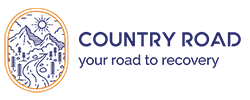Think you know what addiction treatment looks like? Think again. While the traditional methods like 12-step programs, therapy sessions, and quiet, introspective rehab centers are still around, the addiction treatment industry is evolving. More and more technology is playing a role in shaping the future. From apps that fit in your pocket to science-fiction-level brain interventions, advancements in addiction treatment are making it more accessible, personalized, and effective than ever before. What does the future look like for addiction recovery?
Apps & Digital Health Platforms: Therapy on Demand
There’s an app for everything these days, and addiction treatment is no exception. Digital health platforms are becoming an integral part of recovery journeys. Health and wellness apps like Pretaa provide 24/7 support, offering everything from monitoring biometric data to patient assessments. This real time data analysis aids clinicians and can improve patient outcomes.
One standout is the use of telehealth for therapy. With online platforms, individuals can access licensed therapists from their phones. This is especially useful for people in rural areas, who may not have easy access to in-person counseling.
These apps are even starting to incorporate artificial intelligence to provide personalized recommendations. Some platforms can analyze user behavior to predict when someone might be at risk of relapse and then offer tailored interventions, like mindfulness exercises or a quick chat with a counselor. It’s like having a pocket-sized support system that never clocks out.
TLDR:
- Accessibility: Treatment is now available anywhere, anytime.
- Affordability: Many apps are low-cost or even free.
- Personalization: AI-driven insights make treatment more relevant to individual needs.
Virtual Reality Therapy: Stepping Into Sobriety
You can probably imagine battling dragons with a VR headset, but what about battling addiction? It might sound futuristic, but virtual reality therapy is already making waves in addiction treatment. VR allows people to safely confront triggers in a controlled environment. For example, someone recovering from alcohol addiction might enter a simulated bar to practice refusal skills or learn to manage cravings.
Beyond trigger exposure, VR is being used to teach mindfulness and stress management. Programs like Limbix and Psious guide users through relaxation exercises in calming virtual landscapes, like serene forests or tranquil beaches. This immersive approach can help people manage anxiety and build resilience.
Studies suggest that VR therapy can reduce cravings and improve coping mechanisms. It’s not a standalone treatment but a powerful supplement to traditional methods. Plus, let’s be honest: Who wouldn’t want to meditate on a virtual mountaintop?
TLDR:
- Realistic Practice: Confront triggers without real-world risks.
- Engagement: The immersive experience keeps people invested.
- Versatility: Works for various types of addictions and mental health challenges.
Brain Stimulation: Rewiring Recovery
This one sounds straight out of a sci-fi movie: using brain stimulation to treat addiction. Techniques like transcranial magnetic stimulation and deep brain stimulation are showing promise in helping people overcome substance use disorders.
TMS uses magnetic fields to stimulate specific areas of the brain linked to addiction and cravings. It’s non-invasive and has already been FDA-approved for conditions like depression. Early research suggests it can reduce cravings for substances like alcohol and cocaine.
DBS, on the other hand, involves implanting a device that sends electrical impulses to targeted brain regions. While it’s more invasive, it’s being studied for more severe cases of addiction, particularly when other treatments have failed. These interventions aim to reset the brain’s reward system, helping people break free from compulsive behaviors and cycles of relapse.
TLDR:
- Innovation: Pushes the boundaries of what’s possible in treatment.
- Hope: Offers new options for those who haven’t found success with traditional methods.
- Science-Backed: Grounded in emerging neuroscience research.
The Bigger Picture: Tech Is a Tool, Not a Cure
While these innovations are exciting, it’s important to remember that technology is a tool. It is not a replacement for human connection or comprehensive care. The best addiction treatment still involves a combination of evidence-based therapies, peer support, and individualized care plans.
That said, tech is making recovery more accessible and tailored to individual needs. Whether it’s through an app that tracks sobriety milestones or a cutting-edge brain treatment, these innovations are giving people more ways to reclaim their lives and that’s a good thing.
Want to Learn More?
The future of addiction treatment is here, and it’s packed with potential. As these innovations continue to evolve, the possibilities for recovery are becoming as diverse as the people seeking it. If you want to learn more about how Country Road Recovery utilizes technology in treatment, give us a call today. The days of one-size-fits-all treatment are behind us, and the future is looking brighter than ever.


